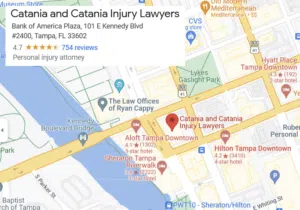
Medical professionals have defined over 100 different types of nerve damage. The symptoms of nerve damage can vary widely. They can even produce effects that seem disconnected from the original cause of the nerve damage.
For example, nerve damage can cause constipation, impotence, and an inability to regulate your body’s temperature.
Here is a quick guide to the causes and effects of nerve damage and the compensation you might be able to seek for your injury.
Table of Contents
How Does Nerve Damage Happen?
Nerve damage includes any injury in which the nerves cannot carry signals from the body to the brain or from the brain to the body.
Nerve damage can result from many different causes, which include:
Disease
Auto-immune diseases can cause the immune system to attack the nervous system. Diseases like diabetes and cancer can also damage nerve tissue.
Burns
The epidermis, dermis, and underlying fat and muscle tissue contain nerves. Any burn can produce nerve pain. Severe burn injuries can damage the nerves, causing a loss of sensation in the area of the burn.
Road Rash
Motorcycle accidents, bicycle accidents, and pedestrian accidents can produce road rash. Road rash happens when the pavement abrades the skin and other tissue in your body. These severe abrasion injuries can damage nerves.
Repetitive Stress
Repetitive stress can cause tissue to swell and compress nerves. Repetitive stress can also cause compartment syndrome.
In compartment syndrome, swollen tissue cuts off the blood supply and causes tissue to die from lack of circulation. Nerve damage due to repetitive stress is a common basis for workers’ compensation claims.
Back Injury
A back injury can damage the spinal cord. The spinal cord carries nerves connecting the brain to the body. A back injury can sever or compress nerves in the spinal cord, leading to paralysis, loss of sensation, and even death.
For example, a broken vertebra can leave bone fragments in the spinal column. These bone fragments can compress nerves. Similarly, a herniated or compressed disc can bulge into the spinal cord and press on the nerves.
Trauma
Any traumatic injury can damage nerve tissue. From torn muscles to fractured bones, any time your body experiences an injury, the trauma can also damage nerve tissue.
What Are the Risk Factors for Nerve Damage?
Although nerve damage can result from any kind of disease or accident, some events are more likely to produce nerve damage.
These include:
Falls
Slip and fall accidents and falls from a height can injure the back and neck. These injuries can compress the spinal cord, causing nerve damage.
Car Accidents
Car accidents can cause back and neck injuries that damage the spinal cord. They can also produce nerve damage in the brain, which is known as a diffuse axonal injury.
In a car crash, your head and neck whip back and forth. This can stretch or tear nerve tissue in the brain called axons. Damaged axons cannot carry signals between brain cells. This can result in sleep disorders, cognitive decline, and even coma.
Motorcycle Accidents
Motorcycle accidents expose riders to road rash, burns, back injuries, and neck injuries. Any of these can cause nerve damage.
Workplace Injuries
The workplace exposes workers to many potential causes of nerve damage, which include:
- Falling objects
- Repetitive motions
- Falls
- Burns
- Toxic exposure
Toxic chemicals can cause diseases that result in nerve damage. Some toxic chemicals trigger auto-immune diseases, while others can cause tumors that press on nerves.
What Are the Symptoms of Nerve Damage?
The symptoms that result from nerve damage will vary depending on the affected nerves.
Some symptoms of nerve damage include:
- Numbness or tingling
- Burning sensation
- Pain
- Loss of coordination
- Loss of motion, including paralysis
- Muscle spasms
- Loss of sensation
- Loss of sensitivity to hot or cold
- Weakness
Nerve damage can cause specific symptoms when the nerves that lead to a particular organ or body system sustain damage. For example, damage to the nerves leading to the muscles near the intestines can cause constipation. Similarly, damage to the nerves that lead to the bladder can cause loss of bladder control.
Spinal cord injuries can cause devastating symptoms. The extent of the damage will generally depend on the location of the injury.
Injuries that occur directly below the skull will almost always result in death. Injuries that you suffer below the first vertebra could cause paralysis of the muscles in the legs, arms, chest, and abdomen. This paralysis could also include the muscles that expand and contract the lungs.
How is Nerve Damage Treated?
The body has a limited ability to repair nerve tissue. The brain can also rewire itself to use healthy nerves instead of damaged nerves using a characteristic called neuroplasticity.
Unfortunately, doctors cannot fix damaged nerves. Instead, they usually treat the effects of nerve damage using a combination of treatment methods. These may include muscle relaxants, pain medication, and physical therapy.
In many cases, nerve damage can affect you for the rest of your life.
What Compensation Can I Recover for Nerve Damage?
If you experienced nerve damage on the job or as a result of someone else’s actions, you might be able to seek compensation for your injuries.
For injuries in the workplace, Florida law limits injury claims to the workers’ compensation system. But a successful workers’ comp claim can help you to get medical benefits and partial income replacement.
If your injuries permanently affect your ability to work, you may also be eligible to receive disability benefits. Since doctors cannot cure nerve damage, you could reasonably seek disability benefits for your injuries.
If your injury resulted from the negligent or intentional act of a person or a business, you could also seek compensation for your injuries. If you succeed in an injury claim, you will receive compensation for your medical bills, lost income, diminished earning capacity, and pain and suffering.
Contact a Tampa Personal Injury Lawyer to Discuss Your Claim
Would you like to discuss the compensation you can seek for nerve damage? Contact Catania and Catania Injury Lawyers for a free consultation. Call us today at (813) 222-8656 or contact our law office in Tampa, Florida online. Our Tampa personal injury lawyers will review your case and help you to determine your next steps.




